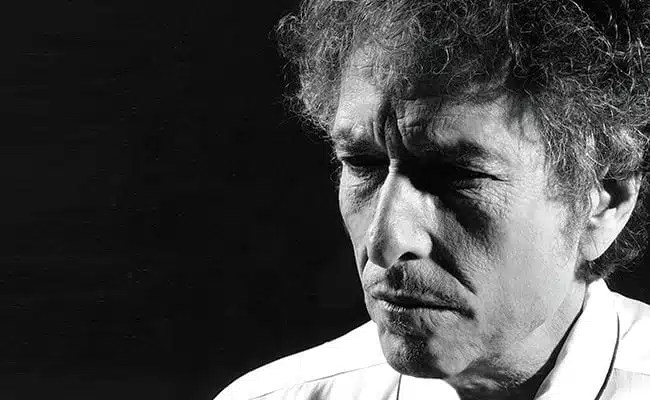
There’s something reassuring about hearing Bob Dylan’s weathered voice, battered by over 50 years of recording and performing, crooning “and if you should survive to a hundred and five / look at all you’ll derive out of being alive / and here is the best part / you have a head start / if you are among the very young at heart”, in the opener to his latest covers album, Fallen Angels.
Dylan shows every intention of surviving until at least a hundred and five (hell, that’s 30 years from now, imagine how many great albums the man could put out during that span!), and he’s already derived more out of being alive than anybody could have imagined. Bob Dylan is a legend, the greatest songwriter in rock history, and if anybody has earned the right to ease into a warmly nostalgic set of well-worn classics it is he. Dylan’s not covering pop standards out of laziness, though, or because his own songwriting well has dried (he delivered the razor-sharp collection of originals, Tempest, only four years ago, and covers have always been a huge part of his repertoire). His fondness for these songs is obvious in the carefully crafted arrangements, the deep resonance of his vocals and the glowing charm his band wrings out of these old nuggets.
Fallen Angels is a companion of sorts to his last album Shadows in the Night, released barely a year ago. It is also a set of Dylan’s take on standards from the deep catalog of pop music history. He opened that album with a much darker vibe, a stunning take on “I’m a Fool to Want You”. Here, “Young at Heart” sets a lighter tone, which he more or less maintains throughout the album. Like its predecessor, all of the songs here (apart from the Johnny Mercer / Hoagy Carmichael gem “Skylark”), were at one time recorded by Frank Sinatra, but every one of them have been covered by a wide array of artists spanning decades.
Dylan offers a whimsical take on “Polka Dots and Moonbeams”, which, like much of the album, features gleaming lines of Donnie Herron’s steel guitar that shimmer like the moonbeams in the lyric. Like on Shadows in the Night, Dylan’s voice here is surprisingly supple given the ragged croak he often delivers live in concert. He instills sincerity and genuine feeling in the gently swaying “All the Way”, an Oscar winner in 1957 for writers Jimmy Van Heusen and Sammy Cahn after Frank Sinatra recorded it for the film The Joker Is Wild.
“Nevertheless” dates all the way back to 1931 when Bing Crosby first recorded it, and dozens of musical luminaries have covered it since. Dylan’s take is a stately country slow-dance with a beautifully elegant guitar solo. “All Or Nothing at All” was a huge hit for Frank Sinatra in 1943, and Dylan’s reverent take on the 73-year-old track features one of his strongest vocals on the album, rich with feeling. He also takes a few lesser-known gems for a spin, like the jazzy little novelty “On a Little Street in Singapore”. Dylan’s voice is so closely mic’d that his ragged intakes of breath are clearly audible as he gamely tackles one of the album’s more robust vocal challenges.
Perhaps the weakest moment is “It Had to Be You”, which is a bit like drunken late-night karaoke with a band badly in need of a caffeine infusion. He makes up for it with a swinging take on “That Old Black Magic”, with the band finally unleashed from all the slow tunes and Dylan keeping up with their pep admirably. The album ends with the sentimental ballad, “Come Rain or Come Shine”, lovely and solemn.
It’s remarkable how cohesive Fallen Angels is as a listening experience considering that the material stretches decades. Dylan proves that these songs are still relevant and can still be deeply felt despite their age. It’s almost as if he’s intent on proving the eternal durability of a great song. Ultimately, that seems to be the point. For Bob Dylan, it’s obviously a labor of love, and for the most part he succeeds.
It’s not on the same level as Shadows in the Night, which is darker, more emotionally intense and an altogether more potent experience. At times Fallen Angels feels a bit lightweight in comparison. Still, it’s a touching tribute to Dylan’s continued passion for music, his love of performing and a celebration of some damn good songs.


